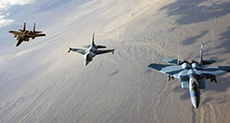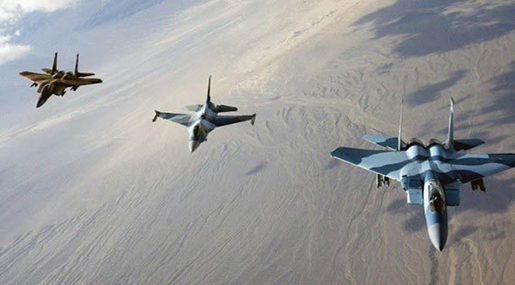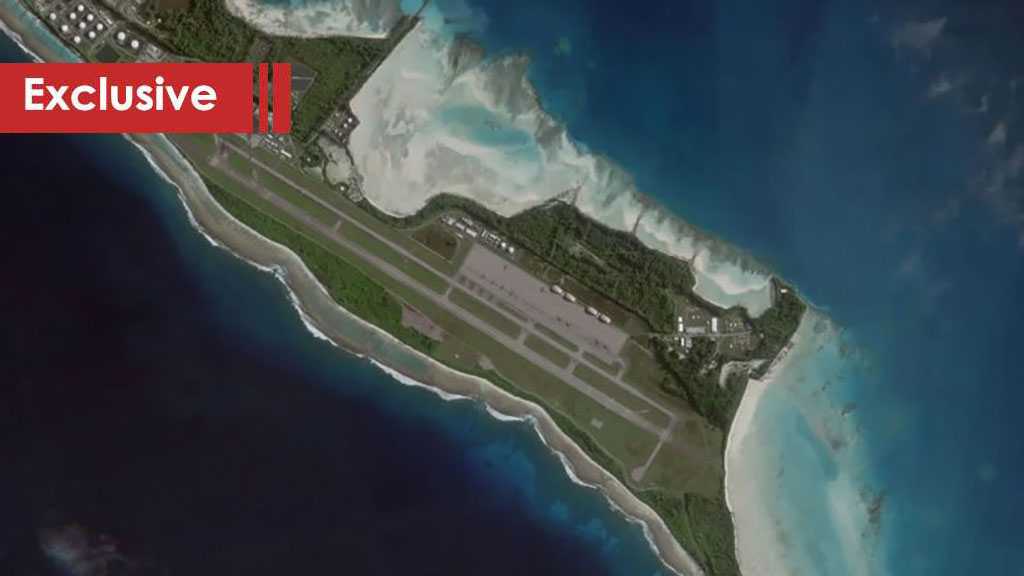Syria after the Russian ‘shift’

Hosam Matar
The dramatic Russian shift on the Syrian chessboard has reshaped the balance of power. The Syrian arena has already seen a similar shift when Hizbullah took the decision to get involved in the Syrian war in 2013. The conditions that Russia is currently experiencing place it before a military move that must not fail, and therefore must be carefully calculated and linked to a clear political pathway that eventually leads to a resolution.

Putin cannot be locked into an open confrontation in Syria without a political horizon or vision, a vision that will emerge with the progress of the Russian military effort, [depending] on its ability to break opposition and its regional backers' will for war. Putin will strike strongly, and at the same time, will open narrow outlets for a resolution, that expand according to the extent that Ankara and Riyadh yield.
The Russian move came after the Iranian nuclear agreement - whose effects are set to emerge, the Turkish-Saudi-backed opposition's control of the cities of Idlib, Jisr al-Shoghor, and parts of Sahl al-Ghab, the failed attempt by the Russians to achieve a breakthrough with Saudi Arabia, an attempt by the Turks to establish a buffer zone in northern Syria that was rejected by Washington, and an announcement by the Americans of the failure of their project to train a moderate opposition to fight "ISIL".
Shortly before the Russian shift, there emerged a big turnaround by the West regarding their approval of President Assad within a transitional period. What followed was an approval by the Americans for the Russians to partake in confronting "ISIL", and a US approval of battlefield coordination in order to avoid any accidental contact.
In recent months Western concern has grown over the "ISIL" phenomenon, and the possibility of the collapse of the Syrian state, while the Turks and the Saudis insisted on their hostile approach that calls for the stepping down of Assad as a prelude to any political agreement.
Obama has entered his last year, and he wants to leave the Syrian file in secure conditions, in order to hand it over to his successor with the least amount of dangers, having succeeded in the destruction of large parts of the Syrian state. The above explains the widening rift between the US and its regional allies regarding the Syrian situation, similar to some extent to the rift regarding the nuclear agreement.
Therefore, the field developments in the north in favor of the opposition, the increasing danger posed by "ISIL", the fact that Obama has entered the "stoppage-time" of his term, and the differences between the US and its allies, have created a window of opportunity through which the Russians have entered in order to carry out their dramatic shift.
The US-Russian dialogue on Syria has not subsided throughout the Syrian crisis, but rather, it was key to placing limits on the war, such as the settlement of the Syrian chemical dossier. The Americans announced today their understanding with the Russians on the part related to "ISIL", but they oppose a Russian role in the targeting of the "moderate opposition", which would be looked at by Washington "with great concern" [as expressed by Patrick Ryder, a spokesman for US Central Command].
Were the Americans surprised with the Russian airstrikes on the positions of the "moderate opposition" in Syria's north? According to an article published in The New York Times [Helene Cooper and Michael Gordon] on September 29, that is, before the start of the Russian offensive, the "American decision-makers believe that Russia's priority is not necessarily to fight ‘ISIL'." For his part, Philip Bredlav [general commander of NATO forces in Europe] said in a speech delivered on September 28 that Putin seeks several objectives that preceded the beginning of strikes against "ISIL", and these objectives include emerging as an equal on the international arena, securing a foothold in warm waters, and prolonging the life of the Syrian government.
The above does not mean the full approval of the Americans towards these airstrikes, but rather, it seems that the Russians in calculating the risks and repercussions informed the Americans that the attacks will exceed [targeting only] "ISIL", in order to protect the Syrian state from any serious threats. The Americans insist on limiting the approval to striking "ISIL", whereas, they have so verbally opposed any strikes beyond "ISIL" and the Nusra Front, and warn the Russians of appearing as an enemy to the Sunnis of the region, as this would be followed by a wave of extremism and a flow of fighters, and the explosion of the Syrian scene once again.
Putin does not have the capacity to go on an adventure in the form of a wide-scale military move of this size, and away from the Russian border, without a tacit agreement with the Americans on the main red lines. Putin himself, who lost half of Ukraine - keeping in mind what Ukraine meant for Russia - is aware that the confrontation with the Americans has a limit that cannot be bypassed at the end of the day.
This move by Putin seeks to portray Russia as a global power, and not a regional one that finds itself in crisis regarding Ukraine. Rather, an international force that has common interests with the Americans and others under the banner of "the fight against terrorism". Intervention in Syria reshapes the image of Putin at home, and that of Russia abroad.
Putin seeks to normalize relations with the West, according to the standards of international law, and more specifically, that the Russian intervention does not seek to clash with the international system, but rather to confirm Russia's competence to be a partner within it.
For this reason, some Americans understand Putin's move, such as Rick Santorum [a Republican running for the upcoming presidential elections], who stated that he has no problem with the Russians trying to ensure their security, as Putin is acting very rationally in Syria, in contrast, "we" must fight "ISIL" in Iraq and leave the Syrian file to the Russians, because the United States does not have good options in Syria.
From the Russian perspective, Syria has its own significance regardless of the Russian-Western competition in Eastern and Central Europe. Russia, which aims to maintain its image as an international [rather than regional] power requires areas of influence around the world, particularly in the Middle East for geostrategic, economic, and cultural reasons. Through Syria, Russia aspires to partner with the US in administering the balance of power in the region, and to reserve itself a seat at the region's table, to be attended by the most prominent energy powers from around the world [oil and gas], energy that is the essence of Russian power.
The Russian intervention aims, according to several US officials quoted from CNN - to make Russia the force that sets the agenda of the Syrian crisis through the battlefield. This setting of the agenda is aimed at creating favorable conditions for a political settlement to ensure Russian interests at the very best, either with or without President Assad after the transitional phase, which may drag on until the end of his first term. The dilemma regarding Russian interference is related to the Syrian north, Washington's allies' ace.
The Russians will test with their firepower, the US's limits, and the extent to which the Saudis and Turks will yield in the north. Everyone will walk along the edge of the abyss, as they continue to negotiate in order to avoid a confrontation that goes beyond the capacity of all involved. The Americans are not harmed by limited Russian pressure on the Turks and the Saudis, which may even bring them closer to the American approach. The Americans have left the Russians with the opportunity to embark on an adventure. Whether they manage to "school" the Turks and the Saudis, or drown in the mud of Syria, Obama reaps varying gains via the efforts of others.
Accordingly, it is possible to summarize the Russian battlefield goals as thus:
1. Crucial contribution in regaining control over sensitive locations on the frontline that runs from Latakia Hama, which would ensure a fortified and coherent line capable of securing sustainable security to the coast and Homs.
2. Launch airstrikes on the positions of armed groups of Central Asian nationalities.
3. Deterrence and aiding in repelling any attack towards any areas controlled by the Syrian state.
4. Drain and deplete "ISIL" and the Nusra Front through aerial bombardment throughout Syria.
5. Air support for the progress of allied forces towards areas controlled by "ISIL", and the beginning could be Palmyra and the Iraqi-Syrian border region.
6. Russia does not intend to restore the Syrian North [except what was stated in the first point], but will transform it into a "dead" area so as to render the Turks and the Saudis unable to use it as a launch pad to threaten the Syrian state, until a political solution reaches maturity. What remains is the issue of Foua and Kefraya, which are subject to the ceasefire agreement.
The ones most harmed by the Russian move are the Turks and the Saudis, and here lies the main question. It is expected that the two states will seek to balance Russia's entry by pressing on with mobilization and support for foreign fighters to reinforce the achievements in the north. So what capacity do these states have to balance the Russians? Are there any risks of direct Turkish-Russian [military] contact? Which fronts will these [states] ignite to relieve the pressure on the northern front?
Russia today continues what the Syrian army and Hizbullah started - disabling the border areas [Lebanon and Jordan], in a move to restrict the northern border through Russia's airstrikes, which are supposed to be followed by a ground move toward the Iraqi border backed by Russian air support.
In the event of success [of the moves], only then can there be serious talk of a political solution. Thus, Russian intervention is not to decide [the war], but to create conditions for a political settlement in favor of the Syrian state, while the Americans stand aside, content with the destruction they have achieved, eager to see Iran's role in Syria counterbalanced with a Russian role, and seeking to reduce the threats as much as possible.
Source: al-Ahed News, Translated and edited by website team
Comments




